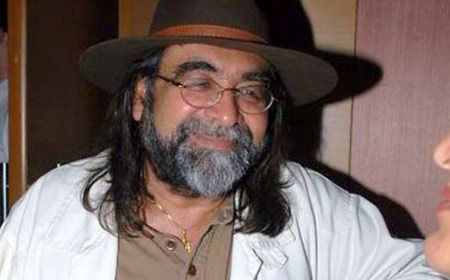Copyright Law should be changed: Prahlad Kakkar

MUMBAI: The very definition of copyright should be altered to create space for information and arts to be freely circulated and rid the world of technicalities, royalties, infringement and piracy, ad guru Prahlad Kakkar said.
Speaking at a panel discussion' Booting Out The Pirates' at the recently concluded Cinema 100 Festival held at Whistling Woods International (WWI), Kakkar said, "The Copyright Law should be changed and there should be no royalties charged after the first purchase. Just because you write some rubbish doesn't mean you can live off it. You have been remunerated. Why is the porn industry not complaining about Internet piracy? That's because it reinvents itself all the time according to changes in the media. Right now, the copyright laws are written by corporates. If they don't get a 200 percent profit, it's not worth their while."
Music and films, like other goods and services which are paid for one time, should be made to be ‘freely' consumed after an initial payment is made for it, he added.
Differing to Kakkar's charge, Human Rights Development, Copyright Registrar GR Raghavendra said the copyright law of India was a balanced law that dealt fairly.
"Piracy is damaging the creativity and economy of India. We have to fight piracy at three levels- legal, commercial and technology. The recently passed Copyright Amendment now has penalties including imprisonment of two years for pirates but implementation is a problem. We need co-ordination between profit owners and police. The prime issue is access beyond physical space and we have to distinguish between commercial piracies and work on commercial solutions for easy accessibility."
The panel agreed that an artist could not be expected to stay detached from his work- in fields like music and films- even if the project is of a commercial nature. Because there is a significant amount of heart and mind invested in the work, there is a sense of attachment towards one's labour which differentiates music and films or many different products and services.
In 2011, piracy cost the global entertainment industry $ 12.5 billion in losses. In India, the loss is estimated to be around Rs 200 billion annually due to copyright infringement. According to the KPMG-Ficci report, the estimated loss due to piracy is as high as 75 per cent of the actual size of the music industry.
Global studies have however shown that pirates are often the biggest legal consumers of content.
WWI Dean and film producer Ravi Gupta said a mechanism must be developed which would collect all royalties due and distribute it to the artists. This could be done both for music and films. On the Internet, where movies are stream, ad revenues could be shared by carriers and owners. All payments have to pass a gateway then can be diverted to respective avenues.
The panel discussion which was moderated by WWI's programme director - MBA Department, head of department (HoD), Sharon Thomas also highlighted initiatives of artists on how they leveraged the Internet platform and got around piracy.
UK band Coldplay released their music on the Internet and asked fans to pay an amount which they felt was fair. Their music was downloaded 1.2 million times and also saw physical sales of 1,00,000 copies.
The panel also interacted with students who shared their views on piracy and consumption habits. Many students, like their peers elsewhere, resort to downloading free music and films due to lack of money and ignorance about the technicalities regarding copyright and piracy laws.
"We have to realize that at times the pirates are us. We are starting a national level anti- piracy campaign beginning with the Western region followed by the North, South then the East," Raghavendra said.














